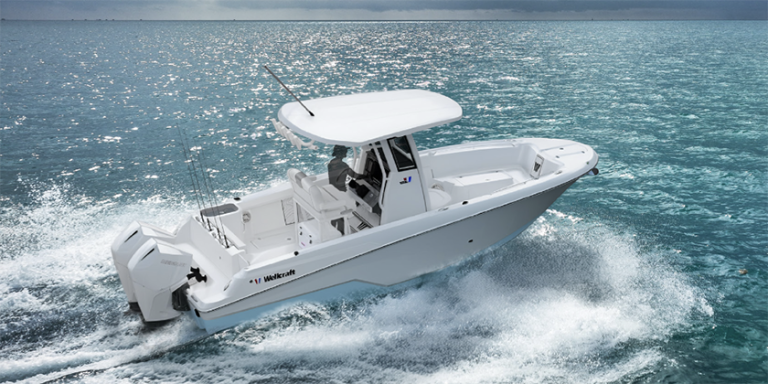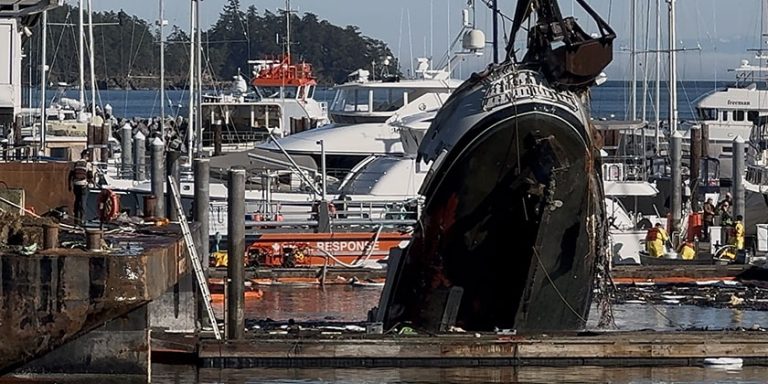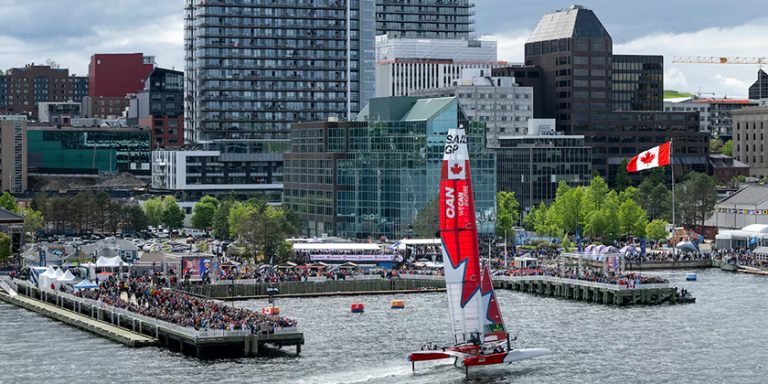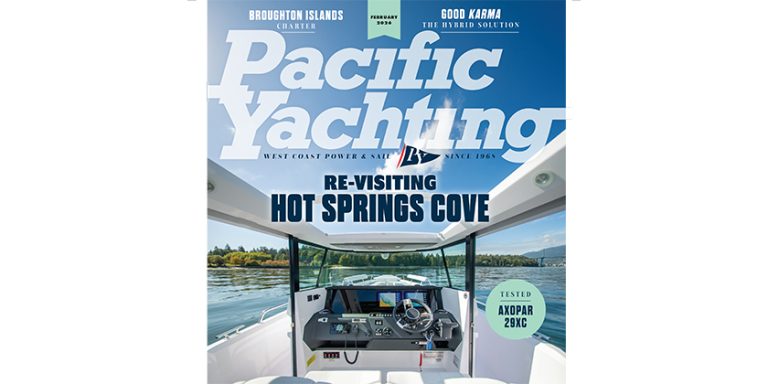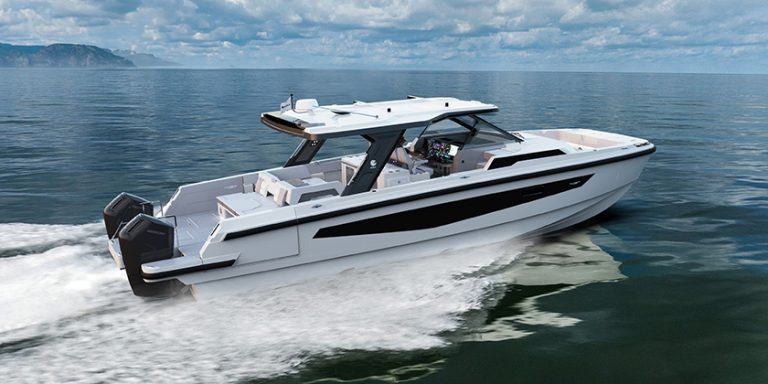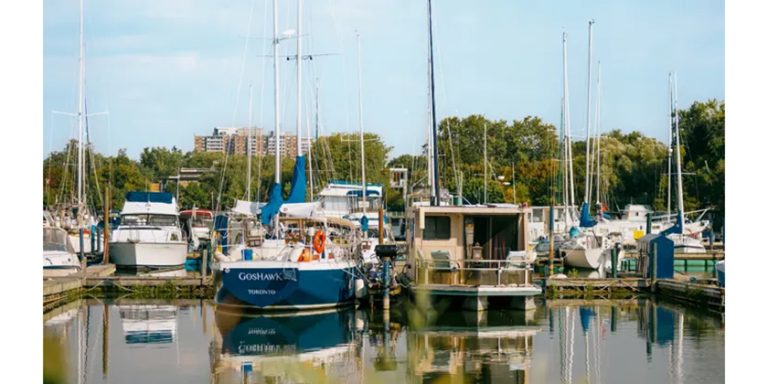Massachusetts Skipper Couldn’t Wait for His 20th Marblehead to Halifax Race
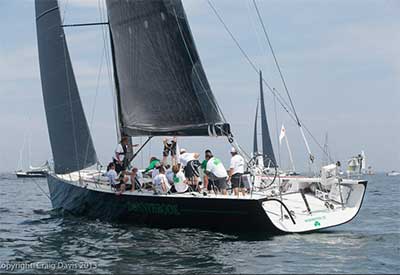
Jeff Eberle of Concord, Massachusetts started racing from Marblehead to Halifax forty years ago. Twenty races later, he hasn’t missed one. And he’s already started to visualize himself in the middle of this year’s race.
“It’s been a nightmare stretch lately in business and I can’t wait to get offshore. I get grounded by being there. Three hours after the starting gun, that’s when I start to feel right,” he says.
The Marblehead to Halifax Ocean Race is a 363 nautical mile course. The 65+ fleet will leave Marblehead, Massachusetts on Sunday, July 5th this year. The race is co-sponsored by the Boston Yacht Club and the Royal Nova Scotia Yacht Squadron.
Photo: Craig Davis Photography
Eberle has skippered a series of boats called Cilista. His current vessel is a J/130. He was in the market for a new vessel in 2005 and had surveyed three possible boats just prior to Hurricane Katrina. One of them was located in New Orleans. The boat survived the storm without being swamped or smashed on shore but there was a lot of cosmetic damage. After the storm, he managed to purchase it at what he calls “a very attractive price”. He and his sons took on much of the repairs, working in Eberle’s garage in Concord. Over two years, they stripped out the interior cabin and reworked the deck configuration to optimize the boat for offshore racing. Heavier work was done by Crocker’s Boat Yard in Manchester, N.H.
He describes Cilista now as a “great platform for a downwind race” and has the results to show for it. Cilista won PHR-2 in 2013, was 3rd in PHR-1 in 2011, 2nd in PHR-2 in 2009 and 5th in IRC-2 in 2007. For this year’s race, the boat is fitted with a new mainsail and a new A-3 spinnaker. “On a downwind reach, we’ll be untouchable!” according to Eberle.
Eberle spends much of the time at sea (10-12 hours a day) in the nav station keeping track of the best information available. “We have a pretty sophisticated electronics package on board and that is our way of keeping on track and reacting to new information when it is available.” Their satellite communications equipment downloads new weather charts every six hours and the on-board software then works out a sail plan and a suggested track so the boat can perform up to potential. “While some people might call this ‘sail by numbers’, I find it takes a whole team of people to parse out the information and figure out what to actually do. Our own knowledge of the course often comes into play.”
As most racers will tell you, Eberle identifies the changing weather and the Bay of Fundy tides as the two big challenges for crews to deal with. “It’s all about training – your preparation both physical and mental and developing the confidence and the conviction to act. Those are the key things in my mind to deal with weather variations in this race. It is as just as mentally challenging to deal with “no wind” as “lots of wind” because people lose focus, get bored and don’t get the most out of the boat. You can make big gains if you are working during “no wind” but it all takes discipline and a little bit of talent.”
Talent is also required to work out a plan to avoid the world’s highest tides that have sucked some unprepared crews off track and up into the Bay of Fundy. “The Gulf of Maine is a gyre and the Bay of Fundy tides are enormous. There is fog at Cape Sable and you can’t see anything with a 5 knot current running against you. What do you do? Do you go close to shore or go out further? It is a difficult call and you can’t make it at the last minute.”
The Halifax race has become a major family and friends event. His twin sons are part of a stable crew of ten, which also includes a friend, Peter Chandler of North Yarmouth, Me. who has been with him for all but one race. Others fly in from Seattle and Colorado.
Part of the attraction is Halifax itself. Eberle says he has come to love the city and Nova Scotians. “In the early years, when we arrived, we were taken to people’s homes and entertained. I met lots of people and really made a strong bond with the people and the city.” In recent years, the Eberles have either rented a house or a block of rooms at a hotel and family and friends fly into join the boat crew. They spend the week after the race vacationing together. And once they head for home, the crew changes and they take their time visiting the villages along the south shore of Nova Scotia and in the Bay of Fundy. This year, their daughter will come from California to be part of that cruise.
About a quarter of the participants in this year’s race are new entrants. The veteran racer recommends they spend lots of time getting prepared for the race. “But enjoy it – don’t get caught up in being too serious. It’s an intellectual game about how you get to Halifax. In a normal race, the conditions are going to change radically and you have to be ready,” said Eberle.

